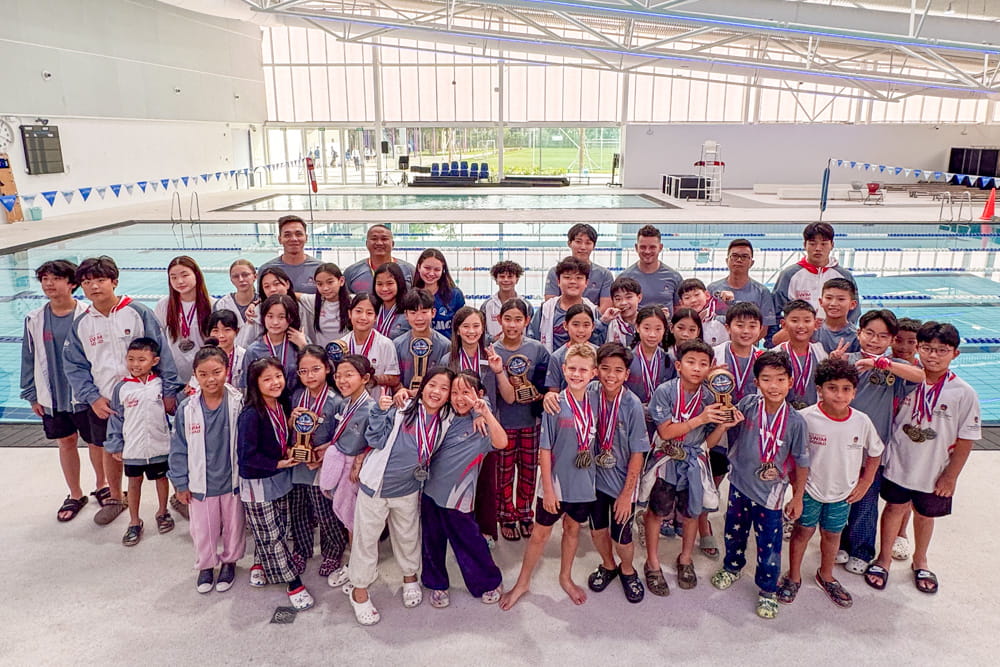Con Dao field trip for Year 12 IBDP students Year 12 Geographers, Biologists and Environmental Systems and Societies (ESS) students had the excellent opportunity to consolidate their classroom learning about coastal systems and ecology on their recent field trip to Con Dao.
Year 12 Geographers, Biologists and Environmental Systems and Societies (ESS) students had the excellent opportunity to consolidate their classroom learning about coastal systems and ecology on their recent field trip to Con Dao.
They undertook their journey to the sand dunes, coral reef and rainforest with enthusiasm. Each day was packed full of learning opportunities and a chance to observe and record the biodiversity of the area. Wednesday began our data collection as we investigated the beach and sand dune systems in a mostly undisturbed environment. Biology and ESS students then continued the week by looking at human impacts on the local rainforest biodiversity. Whilst Geographers continued to investigate how a variety of coastal processes, geology and human interference can change the physical landscape.
“I loved being able to see the way organisms (some of which I've never seen or heard of before) interact with their surroundings and the abundant symbiotic relationships that were pointed out to us during the rainforest trek.” Sanny Wu (Biology)
“While in the sand dunes I was able to explore the ecosystem very closely and I was able to spend time with my friends as we supported each other. Overall it was very fun and the most memorable part of the trip.” Terry Kwon (Biology and Geography)
“It enhances our understanding about what we’ve already learned in school, especially succession. I got to see the sand dune ecosystem in real life which is sometimes hard to visualize in classroom.” Jane Tran (ESS)
The Geographers now have all of the data they need to complete their draft Internal Assessments to meet the IBDP requirements for the course. So, as a fantastic supplement to their classroom learning about the formation and importance of coral reef ecosystems, they were able to take the opportunity of an excellent snorkel off the shore. Here they were able to witness the biodiversity of corals in Con Dao, as well as look at the impacts of overfishing in the non-protected areas.
“I haven’t gone snorkelling many times before but this particular experience opened my eyes to the different interesting coral species. Seeing these species (such as Christmas tree worm and snapper) was something really amazing as I’d never experienced anything like it.” Brigitte Watson (Geography and ESS)
“It is so interesting to see how all of the different processes interact, and the clues we can use from both quantitative and qualitative data in the field.” Tu Anh Dang (Geography and ESS)
The Biology and ESS students benefited hugely from the fieldwork in Con Dao. They were able to learn about sampling techniques in 3 different ecosystems, learning how biotic and abiotic factors affect each other. This supports both their Internal Assessment process and prepares them for their final examinations. In the last 3 days of the expedition, students created their own research question, investigated it using what they had learnt and analysed the data to search for correlations. They have returned to school with a passion for ecology encouraged by their experiences and the expertise of EcoFieldTrips.
“Being able to enjoy an applied learning style within the field trip was my favourite aspect. We were able to achieve so much: from learning facts about snails to collecting data for an IA; all the way to learning about the ecology topic...all in the outdoors.” Serena Huang (Biology)
On our final morning in Con Dao, students took part in a debate about microplastics in the environment. They were able to use their knowledge of the ecosystems they had visited, and different stakeholders involved in using and managing coastal and marine areas to have a heated and informed discussion about how this issue should be tackled and who should be responsible for solving this global issue.
All in all, an invaluable experience looking at the interactions between natural landscapes, ecosystems and human activity, in which the students were able to apply their classroom learning to new locations and situations.
Ms Gemma Archer, Head of Geography and Teacher of Environmental Systems and Societies
Discover more:






.jpg?h=667&iar=0&w=1000&rev=e9ca63bf8e4d449d9a9d3cea9f6158a5&hash=D43C4ED7C1708B4FDC96905CE2F68D6F)

